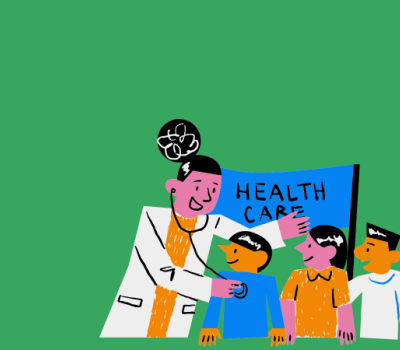Senator Brammer's SB 257, Medicaid Accounts Amendments, seeks to introduce a broadly defined "Medicaid shortfall," which could trigger unnecessary budget cuts to essential healthcare services. Even though the existing budget processes already allow the Executive Appropriations Committee and state agencies to manage budget adjustments during a crisis, SB 257 goes a step further, mandating sweeping cost-cutting measures if a "shortfall" is declared. These cuts could include canceling coverage for any "optional" services—services that are often essential for the most vulnerable members of our community.
If passed, SB 257 would jeopardize access to care for children, seniors, people with disabilities, and rural communities—without offering any clear path to restore the services that will be lost. This bill is not only unnecessary but also overly prescriptive, posing risks to the health and well-being of Utah's residents. Take action now to tell your representatives to oppose SB 257 and protect essential healthcare access.
Why SB 257 is Unnecessary
- Existing authority already covers budget adjustments. The authority to make budget cuts during a crisis already exists for both the Executive Appropriations Committee and state agencies. There is no need to pass additional legislation to grant more power in this area.
- There is no clear plan to restore essential services. SB 257 does not include provisions to reinstate vital programs and services once they are cut. This lack of a clear restoration plan puts individuals who depend on Medicaid at severe risk.
- Medicaid is financially stable. Utah’s Medicaid program is on solid fiscal footing, with the Medicaid expansion account remaining solvent.
The Impact on Vulnerable Communities
If SB 257 passes, the fallout will be far-reaching, especially for Utah's most vulnerable communities. Here are just a few groups at risk:
Children
In Utah, 1 in 6 children is covered by Medicaid. The program helps meet the healthcare needs of nearly 175,000 children, representing half of all Medicaid beneficiaries in the state. Cuts to Medicaid would have a devastating impact on the health, well-being, and future success of these children.
Rural Communities
In Utah’s rural areas, 21% of children rely on Medicaid or CHIP for healthcare coverage. Families in rural areas already face challenges accessing timely and appropriate care, and any reduction in Medicaid services or eligibility could exacerbate these issues. Rural families could also face heartbreaking separations if children are forced to move from Home and Community-Based Services to institutional care far from home.
Adults and Children with Disabilities
Adults and children with disabilities and those with severe health conditions depend on Medicaid for life-saving treatment and services. SB 257’s proposed cuts could endanger the health and stability of individuals with chronic conditions and disabilities, putting essential care out of reach.
The Risk of Losing Critical "Optional" Services
One of the most alarming aspects of SB 257 is its potential to close enrollment to new members and cut "optional" services and programs. While these services are federally defined as "optional," they are often medically necessary and cost-effective. Without these services, individuals with complex needs may be left without care, further burdening an already fragile healthcare system.
Some of the “optional” services at risk include:
- Assisted Outpatient Treatment
- Autism Spectrum Disorder Coverage
- Behavioral Health Services
- Chronic Condition Support
- Home and Community-Based Services
- Homelessness/Housing Support
- Medically Complex Children Waiver
- Mental Health Crisis Support
- Mental Health Services in Schools
- Prescription Drugs/Pharmacy Benefits
- Targeted Adult Medicaid (TAM)
- And more.
We Need Policies That Strengthen Medicaid, Not Destabilize It
Medicaid is not just a health insurance program; it is a lifeline for hundreds of thousands of Utahns, especially children, seniors, people with disabilities, and rural communities. SB 257’s proposed cuts will undermine that lifeline without providing any viable plan to restore services or support those who rely on it.
We need policies that strengthen Medicaid, not destabilize it. Rather than slashing essential services, Utah should focus on maintaining and improving access to health care for the most vulnerable among us.
Take Action: Contact Your State Senator Today
You can help protect Medicaid by contacting your State Senator and urging them to vote NO on SB 257. This bill threatens the health and well-being of our most vulnerable communities, and we need your voice to stop it.












